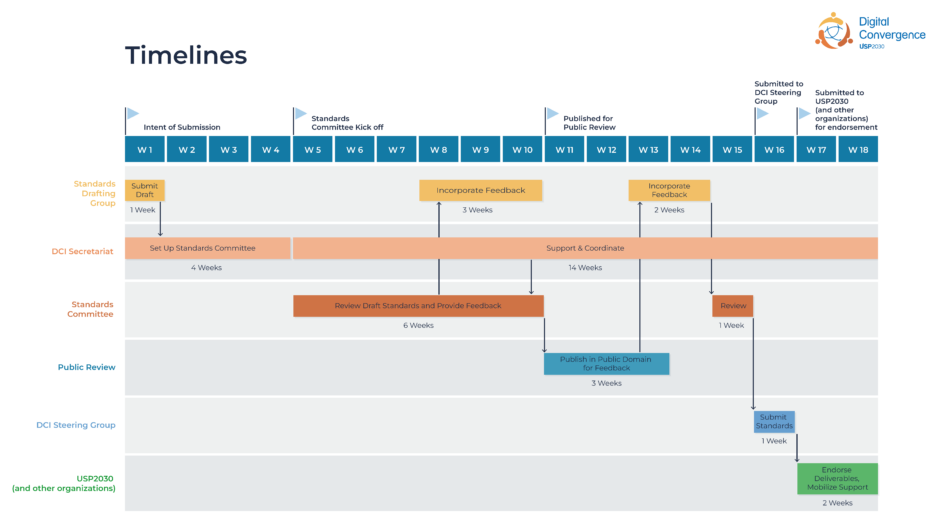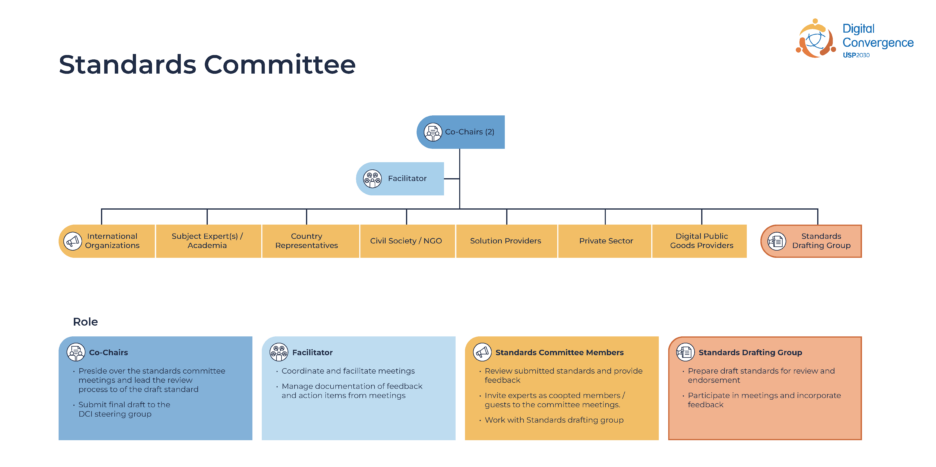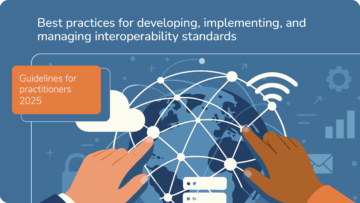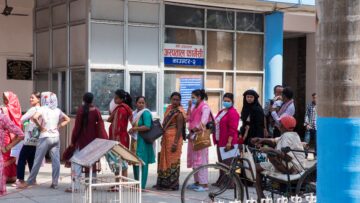
Interoperability for connected systems
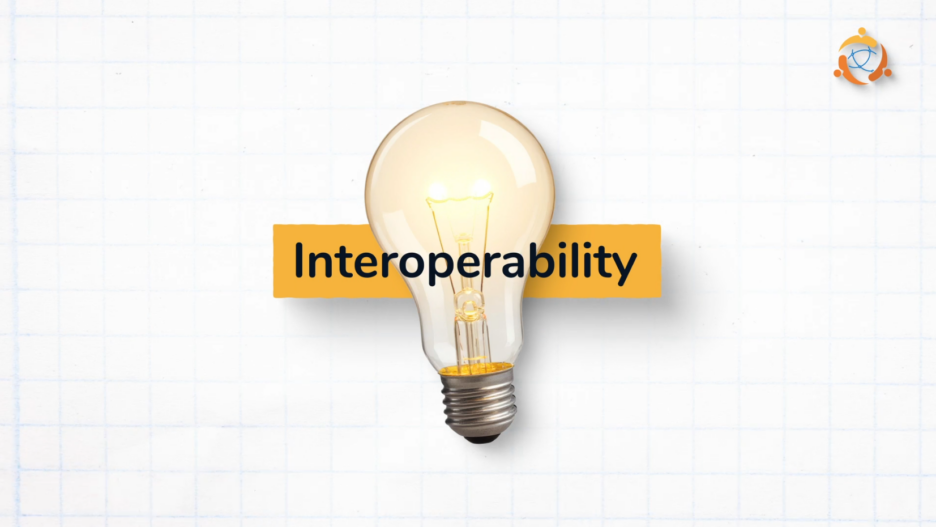
Social protection programs often share similar processes, yet they operate in silos. Without harmonisation, systems cannot communicate effectively, which limits impact and leads to wasted resources. In healthcare, global standards have solved this challenge by enabling interoperability. No such standards existed for social protection, and the DCI is currently filling this gap.
As countries build up their digital systems, they should be designed with the broader ecosystem and interoperability in mind. Standards developed by DCI allows social protection systems to link and interact seamlessly with existing government systems.

DCI is leading the development of interoperability standards that allow programs to exchange data and integrate systems.
By creating common frameworks, DCI helps governments, private sector partners, and social protection systems integrate more smoothly. This reduces time and costs, increases accessibility, and improves the efficiency of service delivery, ultimately leading to better outcomes for people.
Standards development process
DCI develops standards through an open, consultative process:
-
Drafting: a standards drafting group creates draft standards and submits them to DCI.
-
Review and consensus: a standards committee, the DCI steering committee, and the public review the draft and build consensus, with feedback integrated into the drafted standards.
-
Endorsement: final standards are submitted to the USP2030 partnership and other partners for endorsement and wider adoption.
Standards drafting groups
Standards drafting groups create draft specifications for processes, data elements, and APIs that support interoperable social protection systems.
Any entity, whether supported by DCI, other initiatives, or independent, can form a drafting group. They must notify DCI at least four weeks before submitting draft standards, so a standards committee can be set up to review them.
All draft standards are published openly on GitBook and GitHub to ensure transparency and community input.
Standards committees
DCI sets up a standards committee to review each set of draft standards. Members come from academia, government, international bodies, and the private sector, ensuring a wide range of perspectives for consensus building.
The committee works closely with the drafting group to refine the standards. It is co-chaired by two members and supported by a facilitator who manages the committee’s activities.
The DCI Standards Committee follows an open and inclusive participation model. Any interested stakeholder may join and contribute for free without restrictions or preconditions, ensuring equal opportunity for participation across public, private, academic, and civil society actors.
